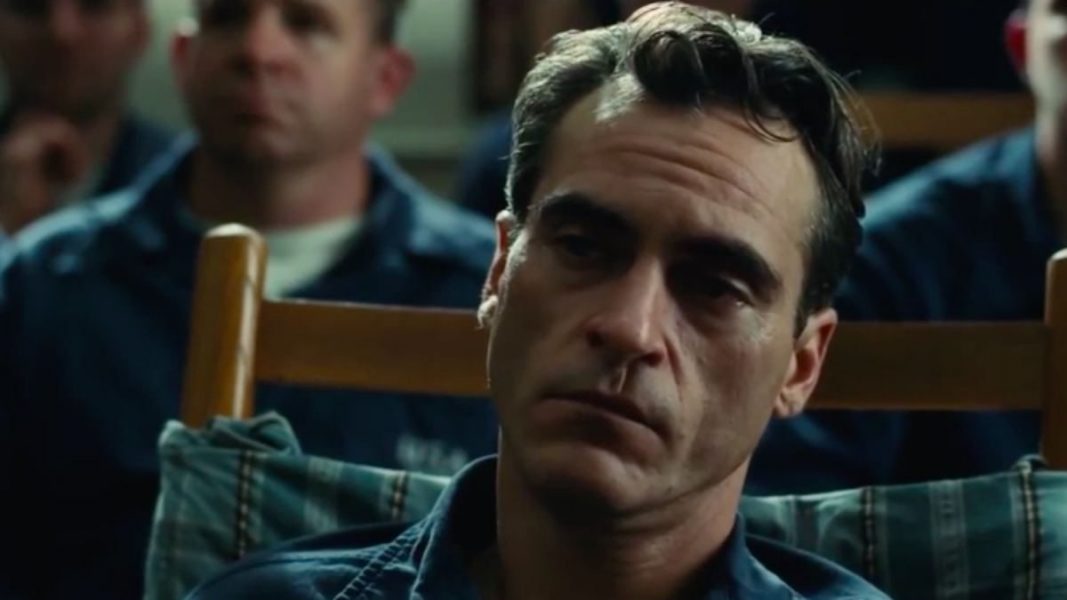Now let me be clear. You are not going to see a list of films here that preach atheism or agnosticism. I’m guessing the majority of my readers who plan to go through this article aren’t the kind to flock over preaches anyway. No, this list contains those films that use the theme of atheism as an integral part of their storylines. The films themselves are not only great, but also find interesting and distinctive ways to communicate their ideologies. The strange thing I’ve noticed about such atheistic films is how character-driven they are.
To take an example that doesn’t appear on this list, the first episode of Polish legend Krzysztof Kieslowski‘s miniseries The Decalogue (1989) sees a man’s struggle to understand the world with reason and/or scientific logic, though by the end, certain events occur in his life that make him succumb to the divine entities he so strongly rejected once. The film describes his transformation as one that comes out of helplessness, misery, and confusion, and works more as a study of his emotions than it does a film with a message against an almighty. Likewise, most of the films I’ve selected here deal with characters who have desires, who fear the world around them, and who struggle to make sense of it all.
I wouldn’t want anyone to convert their beliefs based on the films below, but I would like you to ponder over their meanings, give them some deeper thought, if you feel like you sense the presence of something of the sort in them. You can watch several of these best agnostic and atheist movies on Netflix, Hulu or Amazon Prime.
10. Planet of the Apes (1968)
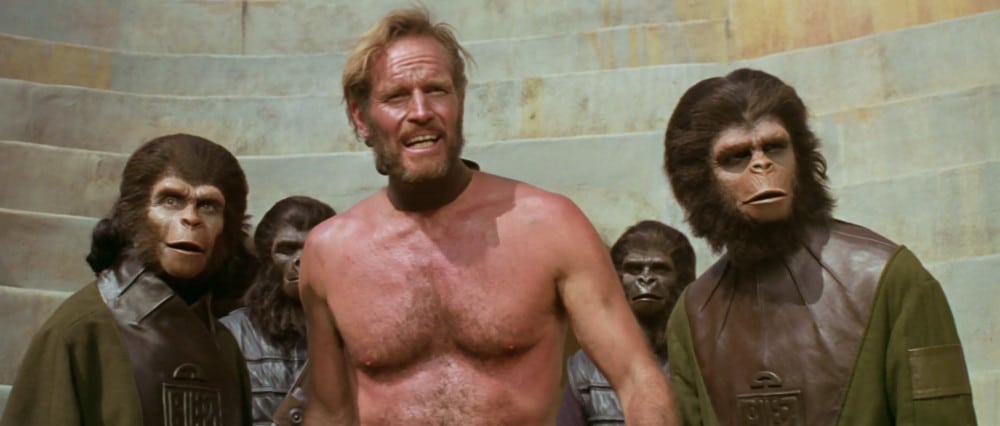
A lot of technical aspects of ‘Planet of the Apes’ make it an important movie that has the ability to stand the test of time, but perhaps, what makes it most relevant in today’s world is its protruding criticisms against religion as a concept. Focusing on the story of a couple of earthmen who travel into the future, only to be witnesses to a dysfunctional planet where humans are seen as docile creatures of lesser importance as compared to the apes who rule the world, it follows them as they attempt to make sense of their surroundings. Religion steps in as a theme in the film as its ill-effects are revealed on this planet of the future rather obviously, and the way they use it to further the plot is simply genius. It is remarked that religion is a tool that has become unimportant in today’s world, except for the purposes of creating wars and conflict. The relevance of religion was needed at a point of time in the past, but holding it in the same regard today is damaging to the progress of the society, as showcased by Dr. Zaius, a character in this film who believes what he is doing is for a good cause, despite his actions being detrimental to the fabric of human harmony and understanding.
9. Life of Brian (1979)
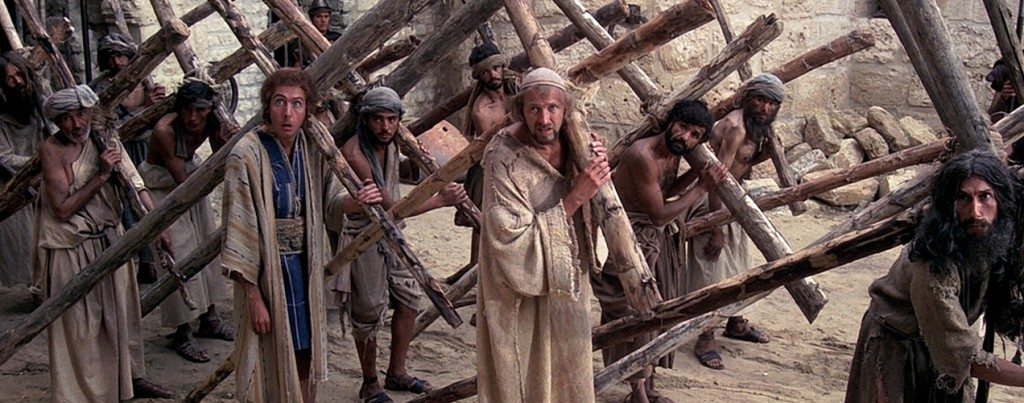
Upon release, ‘Life of Brian’ was determined “morally repugnant” and banned in several countries because of how offensively it handled its subject material. Being a satire following the life of a man named Brian Cohen born on the same day as Jesus Christ, in a manger right next to his, it trails his sorry existence as he is confused with the almighty son of God upon several occasions, as people start to expect him to perform supernatural things not possible by human beings, not to mention his unfortunate tread, by accident of course, through the several paths Jesus had walked upon before him. This ends with the worst luck the man could have ever received, as he is set to be crucified as well. I believe the film’s view on religion is clear, about how it treats its followers like sheep who feel the need to clutch onto anything they see without evidence to back it up. The fact that the film handled its content in a light-hearted, comedic manner made it all the more blasphemous upon release, but I think that adds to its cleverness. It’s definitely the funniest of all the Monty Python films, in my opinion.
8. The Gods Must Be Crazy (1980)
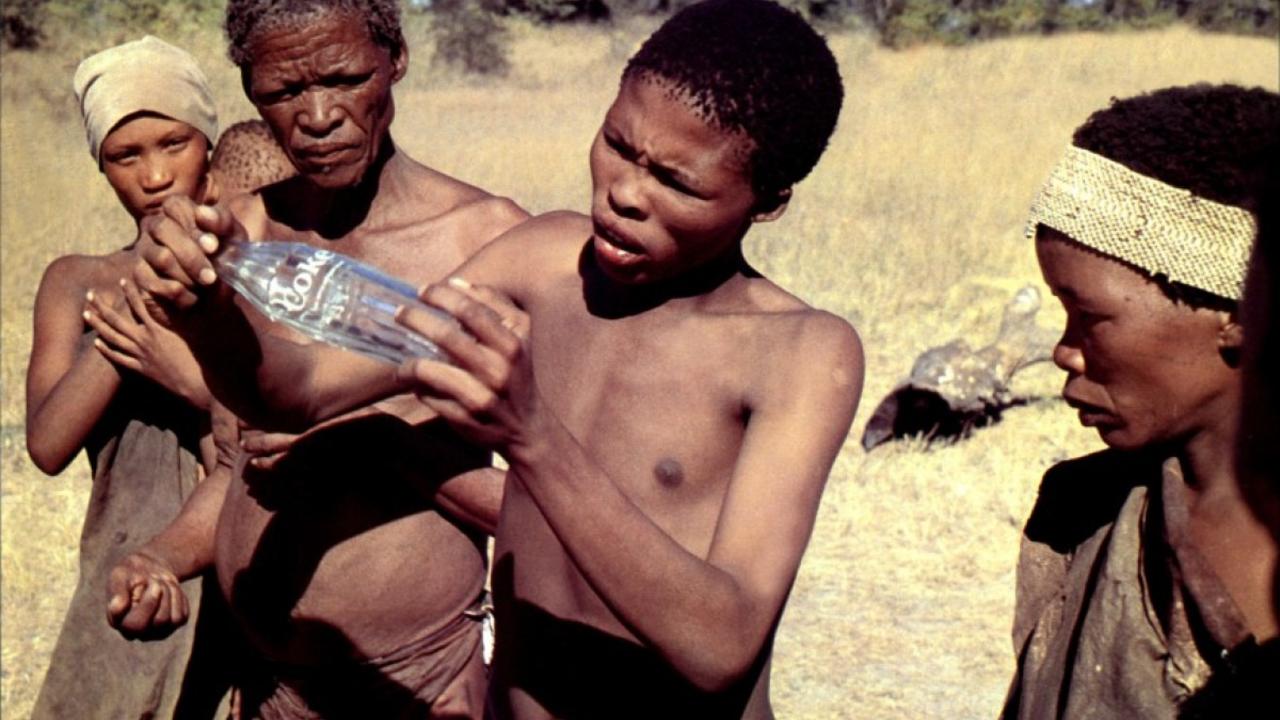
Though in the form of a lighthearted comedy, ‘The Gods Must Be Crazy’ tells a story with an important message, one about differentiating self-help from God-given assistance. When a Coca-Cola bottle drops from the sky onto their land, a socially detached African tribe settled within the Kalahari desert believe it to be the gift of the Gods. Soon after, though, this gift becomes the root of all their conflicts, as this bottle, a commodity that none of the inhabitants of the area had seen prior, is in high demand, and every member of the clan wishes to get a hold of it and use it in their own, distinctive ways. After settling their differences, the tribe comes to the conclusion that this magical gift from the almighty is some kind of a test from above, to see how strong the mutual relationships within their little group is, the only way to pass it being the disposal of this terrible artifact. Thus, a representative of the tribe sets off to the edge of the world, with the evil bottle in his hand. They do not wish to keep this present from above with them any longer, because it disturbs their peace.
7. Black Narcissus (1947)
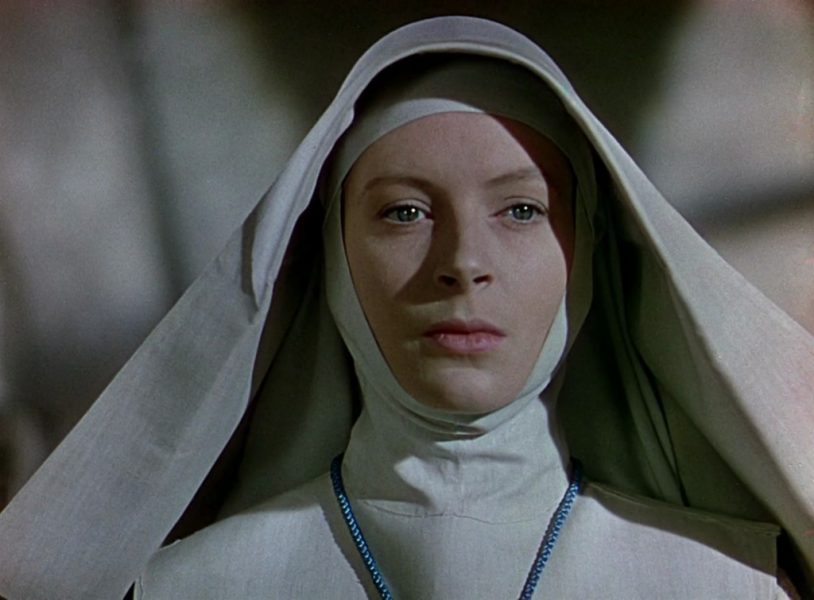
If anything, ‘Black Narcissus’ took a bold stand by marrying the themes of religion and sexuality by telling a relatively erotic tale about a group of nuns who wish to start a convent in the Himalayas, after receiving the invitation of an Indian ruler. Having taken the decision to wear the cloth, it is then their surrounding atmosphere and the characters inhabiting them that influence the nuns and make them think about their pasts, all that they’ve let go in order to be closer to their God. Shot in beautiful technicolor, director-duo Powell and Pressburger took no ordinary step with one of their finest films ever here, because they covered a topic that hadn’t been attempted as strongly in the history of British cinema up until then. Having a sub-theme that focuses on the Western perspective of colonized commonwealth countries, the film nevertheless strongly imposes the perils of religious restrictions throughout this with its shocking tale, as some of the sisters slowly start losing their minds due to a mixed feeling of regret and understanding. A masterfully atmospheric tale, ‘Black Narcissus’ is one of the more uneasy watches on here, though it’s easily one of the most worthwhile.
6. Ordet (1955)
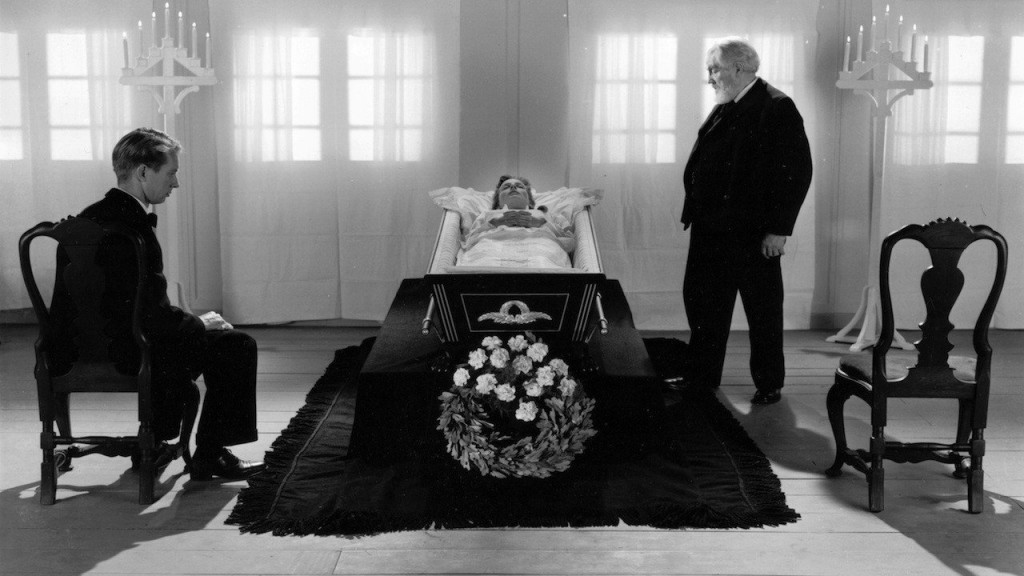
‘Ordet’ might not seem like the typical atheist film upon an initial viewing. Its plot has the tendency to be one that pretty much praises the faith within humans, with a final act that has its events completely depending upon human belief. Still, it’s interesting to note, as someone willing to analyze the themes of Carl Theodor Dryer’s opus might conclude, that the actions of all the humans who cave into believing in the almighty stem from their slow submission to insanity, that grows from multiple events going wrong in their lives. ‘Ordet’ is a fascinating picture that has ambiguous moments open to heavy interpretation, and its stand on belief happens to be one of those things. The film sees a family of mostly strong non-believers finally letting go of their supposed “inhibitions” to practice the way of the lord after an odd lunatic (who happens to be a member of this family) claiming himself to be Jesus Christ is able to convince them of his powers, at a point in time when they have been totally defeated and stranded. Would anyone in their position be willing to accept the existence of a God? Is that all that God is?
5. The Master (2012)
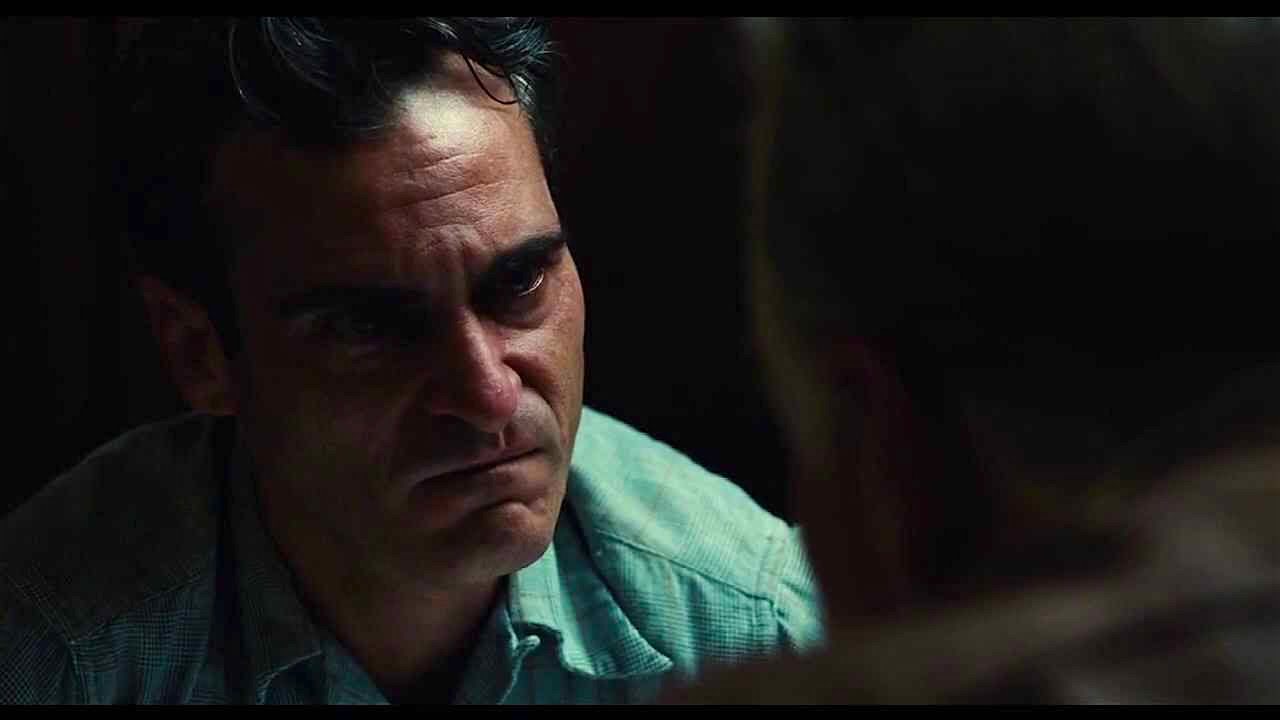
Paul Thomas Anderson’s ‘The Master’ considers the similarities that form in the minds of those believers who support the faith of a particular religion, and how distinct their way of thinking is in comparison to believers of different religions or cults. Freddie Quell, a World War II veteran traumatized by his past, finds comfort under the wing of Lancaster Dodd, the leader of a newly cultivated religion, simply named ‘The Cause’. Its members are all somewhat robotic and sedated in nature, brainwashed to follow a mindset to which Dodd seeks to convert his newest disciple to, though the latter’s erratic and unpredictable behavior makes it all the more difficult. Religion forces its believers to act a certain way and think in a controlled pattern, something that is reached by the manipulation of emotions and memories, which is how the members of ‘The Cause’ are trapped, with the notion of an existing divinity. The lack of power supplied to the followers is something they are completely oblivious to, until one of them, that is, our protagonist, starts showing signs of change, suggesting a revolt of some sort.
4. The Spirit of the Beehive (1973)
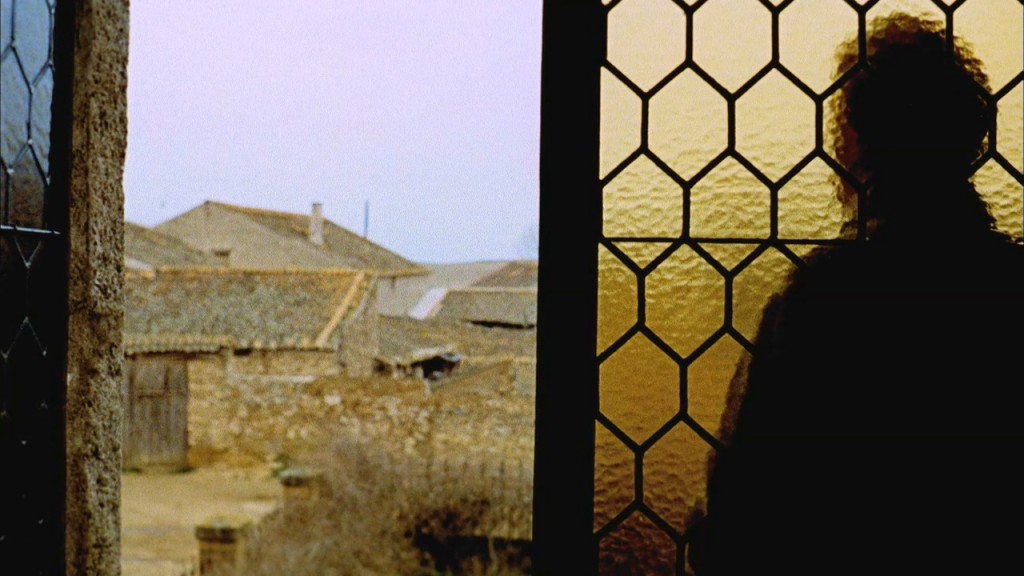
Before I start, I do have to say that if you look for information on this film anywhere online, chances are you’ll get to the Franco-dictatorship period, something that this film is said to be opposing, albeit subtly. While some of this is definitely interesting, and I really can’t deny the connections, I’d rather talk about this film as an independent piece, the story not held within the shackles of politics. It tells of a family of four, primarily focusing on the littlest daughter, Ana. She has a sister who is a little older than her, named Isabel. Their father grooms honeybees, and their mother, Teresa, lives in a world of her own. The setting is a tiny village in 1940s Spain, after the war. The film is concerned with the manipulation of innocence, how simple words, images, and experiences embed themselves in the subconscious of the gullible – the gullible here being the children who are in the limelight, though on further inspection we can see the final results of said naivety within their parents, both of whom are detached from the world in their own ways, trapped within a house that has honeycomb-shaped windows, resembling the abode of those mindless, mechanical insects, all directed to action by their mistress, a Queen Bee. Though silent, the film’s criticism of religion as a concept is ever-present.
3. Yesterday’s Offerings (1973)
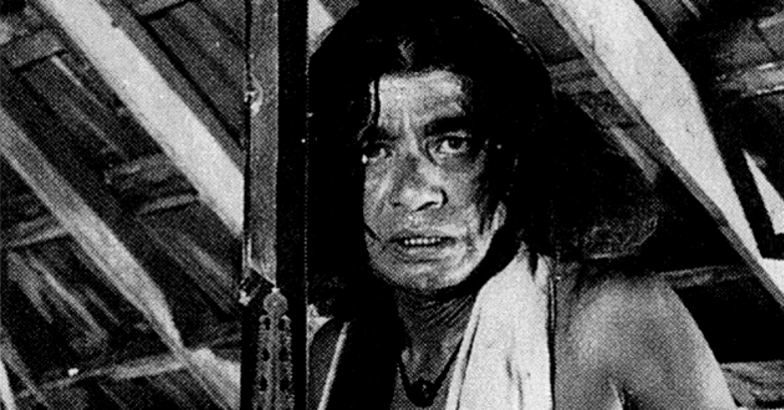
The 1974 Best Picture winner at the Indian National Film Awards might not win the same were it set to release today. It is such a shocking portrayal of rebellion against God that many viewers may fail to see the excellent plotline that builds to the chilling final scene. Following the life of an oracle, who is a devout believer, the neo-realistic tale sees the man’s life slowly crumble around him. He doesn’t earn much from his profession at the village temple, one which is knee-deep in poverty, and he is unable to take care of his family the way he wishes to. His children wander about aimlessly in life, and his wife remains fixated to the walls of their house. Despite all this, he does not let go of his faith. The director of the film, MT Vasudevan Nair, attempts to torture his protagonist with his depiction of reality, breaking his ego and blurring his perception of the world around him. In the end, the oracle sees some things unfold in front of his very eyes that he is shattered by, only moments before a grand ritualistic performance of his is to be held at the temple festival he helped tirelessly raise funds for. At the festival, as the Goddess enters his body (as per belief), the oracle unexpectedly storms into the interior section of the temple, and looks at the deity presented before him. There are no words spoken, but his anger and frustration are both evident in the way he looks at the statue. In an act of utter hatred, the oracle spits on the deity, soon after which he faints.
Read More: Best Christian Movies on Netflix
2. The Seventh Seal (1957)
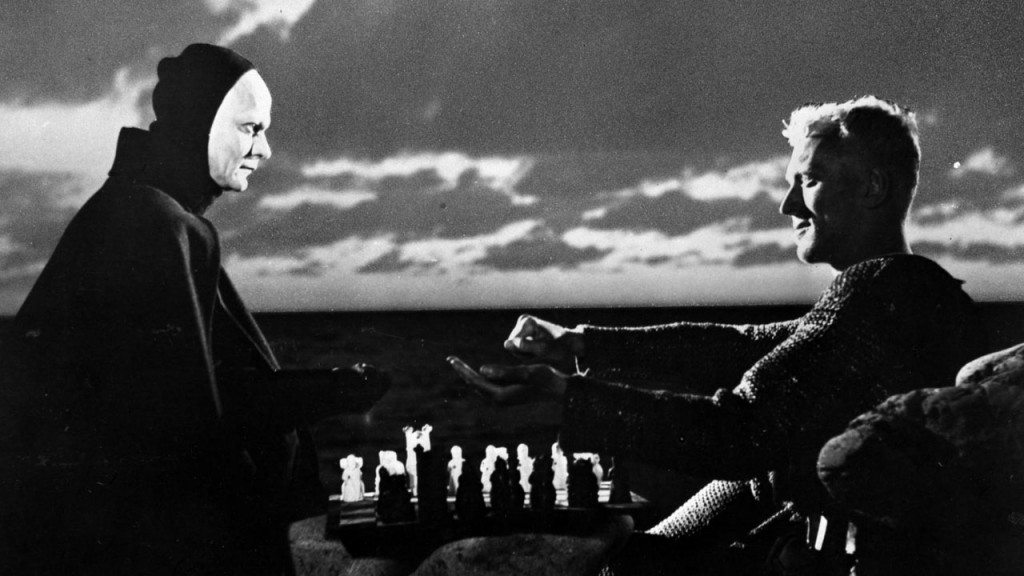
Ingmar Bergman’s highly philosophical drama doesn’t act as a direct criticism of religion, but it does bring the foundation of irrational beliefs under question in its plot, allowing brief moments for the characters to reflect upon their personal faiths. Antonius Block, a crusader and the protagonist of the film, is confronted by Death who tells him that his time has come. Using his smarts, Block is able to lure Death into a game of chess, thereby stalling him, which continues as he walks his path. Several moments later in the film, there comes a marvelous scene where Block confesses his doubts to a priest, regarding the concepts of religion, addressing its problems directly to someone he believes he can trust. He argues that though he wishes to believe in the idea of a God, he is unable to take a leap of faith without credible evidence, since God has never responded to or seemingly even considered his prayers, leaving him helpless and in deep confusion.
Read More: Best Christian Movies of All Time
1. The Holy Mountain (1973)
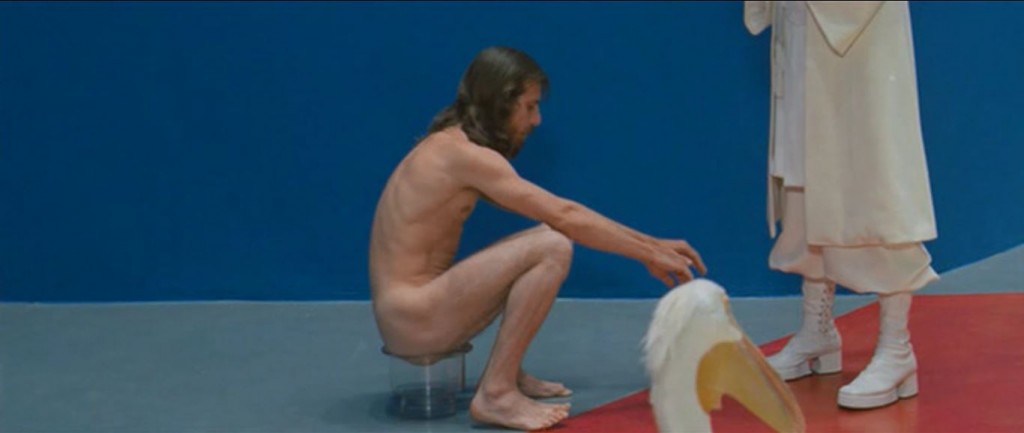
Alejandro Jodorowsky’s opus is one of my favorite films of all time. Unlike many of the other picks on this list, this one is pretty direct with its message, which comes in the form of a surprise twist that seems obvious directly after it is revealed, but works for the better when you realize how its implication affects the storyline. ‘The Holy Mountain’ is a spiritual sci-fi drama that chronicles a trip made by eight disciples of a master known as The Alchemist, to the topmost point of a mountain where they seek to achieve immortality. With a protagonist simply called The Tarot, who makes up one odd member of the disciples, we follow a selected team of leaders, powerful and influential people, all assembled from the different planets of the solar system, with a mission as directed by their collective authoritative figure, played by Jodorowsky himself, who acts like something of a God, supposedly showing his followers that path which is fruitful and right. All of this until the climax, when the team of men and women have reached atop the mountain, only to understand that there is absolutely nothing there. The Alchemist reveals that their world is nothing but a part of a film, breaking the fourth wall in the process, and they haven’t seen even a bit of reality as they lived through the existence they had whenever the camera was pointed at them. It is time to let go of the pleasures offered by lies, and step into the ambiguity that is the truth.
Read More: Best Religious Cult Movies

